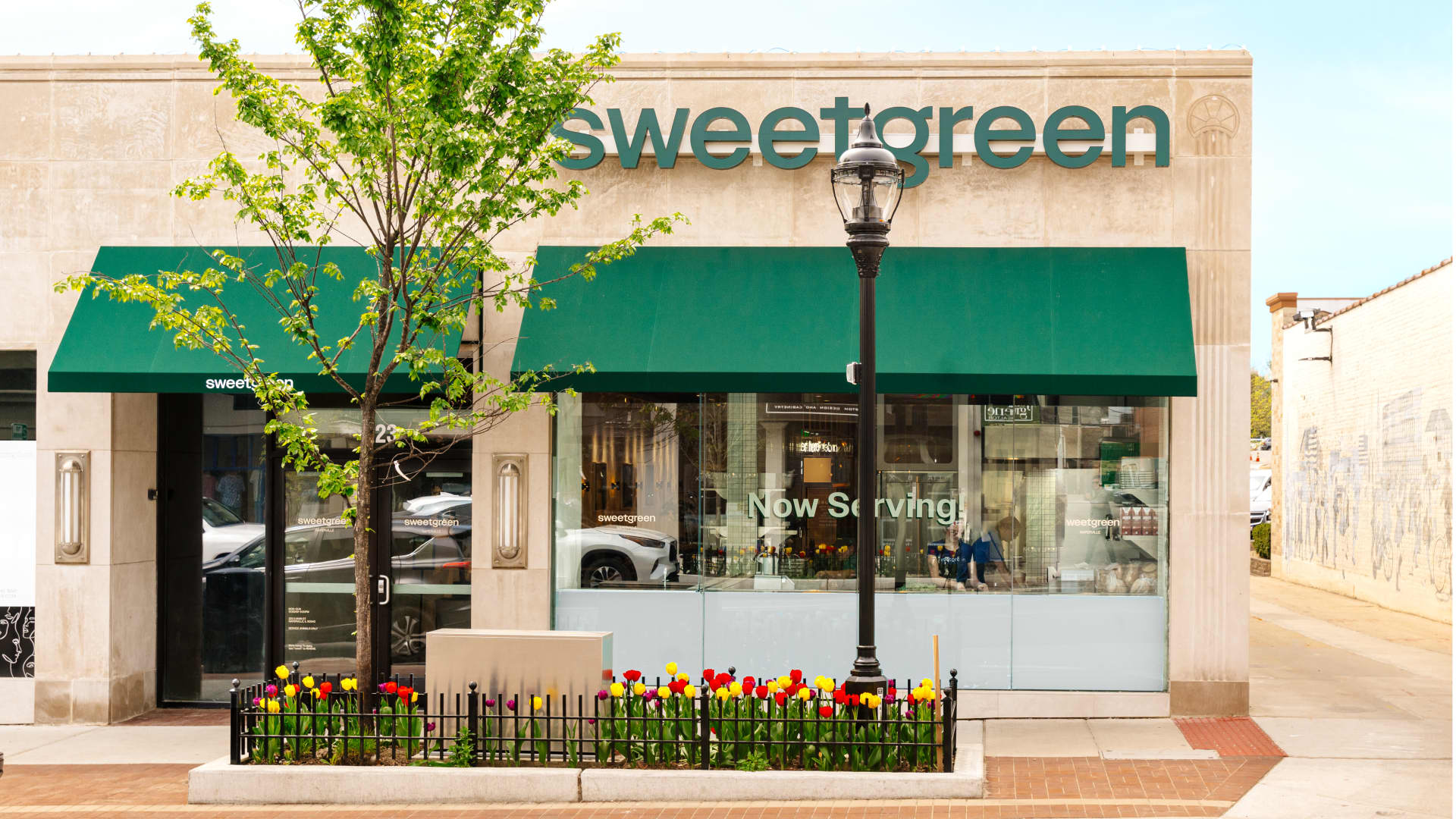Buying and selling a home can be a complicated process. Realtors and lawyers are hired. There are appraisals, inspections and reams of paperwork. Buyers visit homes, find a mortgage lender and qualify for a loan. Once a deal is struck, it still takes an average 30 to 45 days to close on a home, according to Zillow. Technology is finally making inroads into the very localized and regulated market — and it could help streamline the process, a recent report from Citi found. Yet while fintech for real estate (known as proptech, as in “property technology”) may have gained momentum, those in the space are facing a difficult environment. Mortgage rates are rising, home sales are falling and there is a housing recession , according to the National Association of Home Builders. However, there may be some relief if those who recently had their student loans forgiven use that money to buy a new home. It was the pandemic-driven housing boom that helped proptech companies gain share. Demand for housing grew, affordability became stretched and housing inventory was even tighter. “Supply-demand imbalances and affordability factors are driving technology adoption into the housing market,” Citi analysts wrote. The idea is to make the home-buying experience more efficient, Citi said. There are a number of ways technology is being used, including to digitize the lending process and the buying and selling experience. “It is rare to see potential ‘better mousetraps’ of this nature in mature industries like housing, and though it is certainly capital intensive, the strategic positioning of this strategy is supportive of continued growth — even in constrained capital availability,” the report said. Customers are ‘demanding’ convenience Buyers have long been able to scroll through online photos of homes on sites like Zillow , Redfin and Realtor.com. During the pandemic, some buyers were even scooping up houses without ever seeing them in person. In 2020, 63% of homebuyers made an offer on a property sight unseen, according to Redfin . In a bit of fortuitous timing, homebuilder Taylor Morrison revamped its website and technology infrastructure shortly before the pandemic, in late 2019. That allowed the company to easily shift to online tours during the health crisis and build out its virtual offerings even earlier than anticipated, said CEO Sheryl Palmer. These days, customers are staying online because they like the flexibility, she said. They can do the process 100% virtually, including getting a mortgage, or choose to do just some of the process online. Taylor Morrison has four communities that are all-virtual , meaning the only way to buy a house is to go online — although clients can still schedule in-person visits if they desire. Two of those communities are located in Raleigh, North Carolina, one is in Orlando, Florida and the fourth is in Las Vegas. “That relationship with their sales team member for many is still so important, but what they can do is do this on their own time,” she said. “That convenience is what I think the consumer is just demanding from our industry.” The homebuilder closed 3,032 homes at an average selling price of $621,000 in the second quarter. Many of those began online. “There’s not a month since March that we haven’t had a 30% or greater conversion rate, from the folks that started online, made a reservation,” Palmer said. Wall Street analysts are bullish on the stock, which is down about 70% year to date. Taylor Morrison has a mean rating of overweight among the analysts who cover the stock and a mean price target of $33.44, according to FactSet. That target implies almost 37% upside from Friday’s close. iBuyers gain market share Taylor Morrison also has a partnership with Offerpad , an instant buyer (or iBuyer). iBuyers flip homes on a large scale. These investors were gaining market share as the housing market heated up. These companies purchase homes with cash, make any necessary repairs and then resell the properties. For Taylor Morrison clients looking to sell their previous home, it’s a way to get cash and a quick closing. About 1% of all home purchases in 2019 were completed through iBuyers, up from 0.2% in 2017, according to Redfin. Early in the pandemic, iBuyers were slammed, with their market share sinking as low as just 0.1% of home sales in the second quarter of 2020. But in 2021, their volume surged to 1.2% of all home purchases, and even trended above 1.5% in the third quarter of the year, Citi analysts found. The first quarter of 2022, iBuyers made up 1.3% of the market, Zillow data show. While 1% is a small slice of the pie, housing is a huge market. Existing home sales totaled 6.12 million in 2021, National Association of Realtors data show. Some 771,000 newly constructed homes were sold in 2021, according to the U.S. Census Bureau. Overall, housing investments and housing services represented 16.8% of the United States’ GDP in 2021, according to the National Homebuilders Association. Navigating a volatile market There are a handful of public companies in the iBuying space, including Chandler, Arizona-based Offerpad, which was founded in 2015 and operates in 1,800 cities and towns within 28 U.S. markets, including Tucson, Houston and Denver. The largest iBuyer is San Francisco-based Opendoor . Established in late 2013, Opendoor operates in 51 metro areas, including Orlando, Phoenix and, most recently, New York and New Jersey. Redfin also has an iBuying business, Redfin Now, in 34 U.S. markets. Zillow tried its hand as well, but pulled out last year . However, it hasn’t completely given up on iBuying. Zillow recently announced a partnership with Opendoor. The housing market volatility may not be going away anytime soon. Goldman Sachs predicted more pain ahead thanks to higher mortgage rates, limited housing supply and the lingering impact of demand shifts from the pandemic. Yet the iBuyers are undeterred and see opportunity ahead. “Our products are for customers that want convenience. They typically have very busy lives,” said Megan Meyer Toolson, Opendoor’s chief customer officer. “That is true in a seller’s market and buyer’s market and everything in between.” Yet Opendoor, Offerpad and Redfin all saw declines in their homes sold and average prices in the second quarter, Cantor Fitzgerald analyst Brett Knoblauch pointed out in a recent note. “In our view, both OPAD and OPEN are reducing their activity in the coming quarter as the housing market has been extremely volatile and, in certain markets, unpredictable,” said Knoblauch, who covers Offerpad. However, the iBuyers’ near-term struggles will eventually recede, he said in an interview. “As iBuying takes share, you have two companies that stand to benefit and they are being priced like iBuying is going out of fashion, when in my view, the model is working,” he said. Knoblauch has an overweight rating and $5 price target on Offerpad, above the mean analyst price target of $3.88 and in line with the mean analyst rating, according to FactSet. His price target implies 247% upside from Friday’s close. Wedbush analyst Jay McCanless is also bullish on Opendoor and Offerpad, rating them both outperform. His 12-month price target on Offerpad is $5, while his price target on Opendoor is $8 per share. That implies 95% upside for Opendoor from Friday’s close . The mean analyst rating for Opendoor is outperform and the mean analyst price target is $8.83 per share, according to FactSet. “The bear case on this group is that at some point you are going to be left holding too many homes and certainly you can’t deny that is a possibility,” McCanless said. “It’s the long-term picture you have to be mindful of.” Right now, millennials make up the largest share of home buyers, at 43%, according to the National Association of Realtors. Gen Zers make up just 2%. “As those digital native young adults get into more home ownership and household formation, I think the easiest way for market share to go is up,” McCanless said. Then there are those who may finally have the money for a down payment after having their student loans wiped out. The Biden administration recently announced plans to cancel up to $10,000 in student loans for those individuals earning less than $125,000 a year or couples earning less than $250,00 a year. That is in addition to the roughly $25 billion in student debt cancellations enacted so far during the Biden presidency, UBS analyst Matthew Johnson wrote in a note this week. “We believe any incremental measures to reduce the approximately $1.7 [trillion] of cumulative outstanding US student loans, saddling about 45 [million] borrowers, as a potential catalyst for homeownership,” he said. Location and price-point could play a role in how successful iBuyers may be, suggested Citi’s Roger Ashworth, co-author of the firm’s report. High-tax areas can be expensive to have or maintain properties, he said. Therefore, the potential for losses are higher at the higher end of the market. Offerpad appears to be expanding into smaller, lower-priced markets, while Opendoor is moving into higher-cost and potentially higher-turnover markets, Wedbush’s McCanless pointed out. “When you think about the risk/reward, I like the smaller market approach that Offerpad is taking,” he said. “At the same time, the Zillow partnership is going to be a potential game changer for Opendoor.” A ‘one-stop’ destination As technology becomes more embedded in the housing market, there is the potential for iBuyers to expand services even beyond buying and selling. “We believe we are just at the tip of the iceberg when it comes to expanding our one-stop services for all things home,” Offerpad Chairman and CEO Brian Bair said in an email. That includes point-and-click home improvement solutions that enable buyers to leverage home renovation experts, a subscription service for ongoing home maintenance or lawn care services, or even using Offerpad to set up energy-efficient and smart home technology, he said. A more efficient mortgage Another area ripe for innovation is the mortgage business, according to Citi. The total addressable market for mortgage technology is an estimated $14 billion, according to the firm’s report. “The technology developed to make the mortgage process more efficient could lead to cost savings for mortgage originators, faster loan closing times, and faster processing times,” the Citi report stated. Both Opendoor and Offerpad offer home loans. However, Rocket Companies claims the largest share of the business, closing more than $1.5 trillion in home loans over the last 37 years. Rocket’s mortgage platform has tools to help buyers understand what they can afford, and can gather and verify data with pipelines straight to the source, like your bank, Rocket Mortgage CEO Bob Walters said. “Ultimately what you get is a faster process and a more certain process,” he said, pointing out that the average time to close a loan is three weeks, but is often shorter. To be sure, the mortgage industry is facing headwinds. Banks and other lenders have been hit by plunging demand for loans this year — leading some to exit the industry . While some lenders will struggle, others will do OK, Walters said. In fact, the current environment could be an opportunity for Rocket, he said. “History really taught us that some of the best gains happen in the most difficult times,” Walters said. No doubt, there will be some pain. Rocket recently offered a second round of voluntary employee buyouts to cut costs. Wells Fargo agrees there is upside ahead for Rocket, despite the tough mortgage backdrop. “We believe RKT is a well managed and innovative company, positioned to take market share over the long term in the mortgage business,” analyst Donald Fandetti wrote. “Their technology is a key competitive advantage.” Fandetti has an overweight rating and $10 price target on the stock, which implies 31% upside from Friday’s close. In comparison, the mean analyst rating for the stock is hold, with a $8.71 price target, according to FactSet. Blend Labs, a mortgage tech company based in San Francisco, also has a mean analyst rating of hold, according to FactSet. The company, which provides the software applications to the lenders and banks, has laid off about 25% of its workforce this year, largely in its title organization. It reported mortgage banking revenue for the second quarter that was down 6% year over year, but pointed out there was an industry-wide decline of about 37% in mortgage loan origination volumes during that time. Nima Ghamsari, founder and head of Blend, is upbeat on the future of the mortgage tech industry and the opportunity to disrupt the traditional business. “There is a lot of opportunity to serve consumers better and make it lower cost and higher quality,” he said. “The best way to do that is through technology.” — CNBC’s Michael Bloom contributed reporting.
















